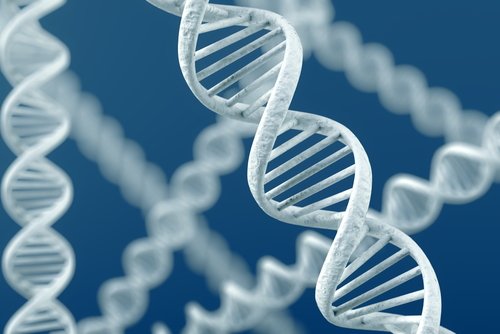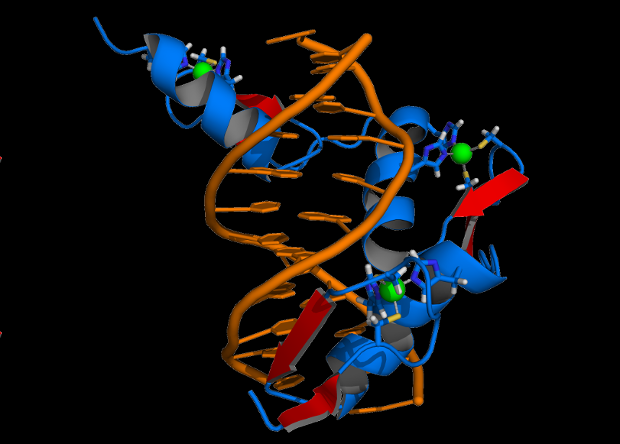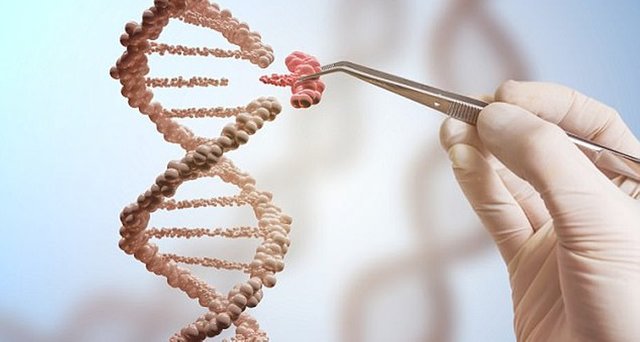Genomic editing was first tested on a living person.
The patient, whose genome was edited, is called Brian Maddox. He suffers from Hunter syndrome, a rare disease associated with the X-chromosome. It is inherited in a recessive manner, that is, a defective gene must be present in both parents. In liver cells, one of the enzymes, iduronate-2-sulfatase, is not synthesized in patients, and therefore the cleavage of glucosaminoglycans, substances that bind cells in tissues, is disrupted. As a result, they accumulate in the body and do not update in time, which affects a variety of organs and tissues. Symptoms of the disease are manifested as early as the second year of life. People with Hunter syndrome tend to have distorted, "rough" features and a large head. The disease affects the nervous system and thinking, can be associated with autism, hyperactivity and obsessive-compulsive disorder. Patients often have obstruction of the upper respiratory tract, rhinitis, inguinal and umbilical hernia and other symptoms.
To cure Hunter syndrome at the moment is impossible, patients are treated symptomatically - with the help of weekly injections of an artificial analogue of the enzyme, and sometimes - with the help of bone marrow transplants. Treatment with an artificial enzyme costs more than 100 thousand dollars a year, and does not improve, for example, the symptoms of the nervous system.
With Maddox, doctors from the Oakland Children's Hospital worked under the direction of Paul Harmatz. He is 44 years old, which, unfortunately, is unusual for patients with Hunter syndrome - a significant part of them die in childhood (now only about two thousand patients all over the world are registered). During his life, he underwent 26 operations to remove hernias, sprouting of bone into the spinal cord, and also surgical interventions on the eyes, ears and on the gallbladder. Every week he needs an infusion of an artificial enzyme, while such injections do not cure him of all manifestations of the disease.
Maddox agreed to become the first patient in the world to edit the genes in his body, rather than in cells grown separately or just pre-extracted from his body.
A copy of the working gene encoding the enzyme, Maddox was injected using the "zinc finger nuclease" technology (one of the modern methods of genomic editing, which is now used along with the more well-known CRISPR technology). In this case, neutralized viral particles carrying an encoded tool for editing the genes, enter the body using a conventional intravenous drip. Then, with blood flow, they go to the liver cells, where the instrument is first synthesized, and then starts to work. Specially designed proteins with zinc fingers (structural components stabilized with zinc ions) recognize the given DNA sequence and cut it in this region (in this case, the gene is inserted into the region of the gene coding for protein albumin). Then a copy of the working iduronate-2-sulphatase gene is inserted there and the DNA is again stitched.
Doctors say that in order for the body to produce a sufficient amount of enzyme it is necessary that at least one percent of the liver cells get a "correct" copy of the gene.
Gene therapy can be associated with certain negative consequences. So, sometimes the immune system reacts too strongly to the introduced virus particles (at the moment they are already constructed in such a way that this should not happen). In addition, it is important where the new gene gets into, because embedding something in some parts of the genome can affect the genes associated with cancer. However, in this case, as in CRISPR-technologies, the place of editing is set with a sufficiently high degree of accuracy. In addition, the target of this therapy is only the liver - scientists separately note that other organs and tissues it should not affect, because the virus particles used can only penetrate the liver cells. Experiments with animals have yielded positive results.
About whether the new gene has "caught on", it will be possible to say no less than a month. Maddox realizes that therapy may not work; In addition, at his age, many changes in the body are irreversible. However, he said, he was waiting for the possibility of editing the genome for the last 15 years, and now it is a great honor for him to take part in such an unprecedented experiment. He hopes that his experience, in any case, will serve other patients for good, and if positive results deprive him of the need to receive every week an injection of an expensive artificial enzyme.





Very.... Nice.....Post..... Follow... Me.. Thanks for Guys!
It would be great if you could provide some references for the material you've used. If you like posting about Stem-related content please feel free to use the steemstem tag, too!
"Maddox agreed to become the first patient" ----- All the links in my articles are highlighted in green (the phrase "first patient"), you need to click on the green letters and you will see additional materials. Long live HTML!!!!! =)
Oh I know that, but that means this all comes from a single source? Seems there's quite a bit more content